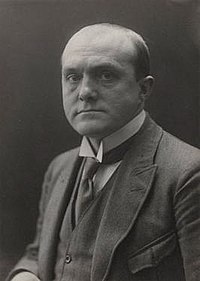Max Beckmann | |
|---|---|
 Beckmann in 1922 | |
| Born | February 12, 1884 |
| Died | December 27, 1950 (aged 66) New York City, New York, U.S. |
| Nationality | German |
| Known for | Painting Sculpture Drawing Printmaking |
| Notable work | The Night, Christ and the Woman Taken in Adultery |
| Movement | New Objectivity Expressionism |
Max Carl Friedrich Beckmann (February 12, 1884 – December 27, 1950) was a German painter, draftsman, printmaker, sculptor, and writer. Although he is classified as an Expressionist artist, he rejected both the term and the movement.[1] In the 1920s, he was associated with the New Objectivity (Neue Sachlichkeit), an outgrowth of Expressionism that opposed its introverted emotionalism. Even when dealing with light subject matter like circus performers, Beckmann often had an undercurrent of moodiness or unease in his works. By the 1930s, his work became more explicit in its horrifying imagery and distorted forms with combination of brutal realism and social criticism, coinciding with the rise of nazism in Germany.[2]
- ^ Max Beckmann Archived January 10, 2006, at the Wayback Machine
- ^ Norwich, John Julius (1985–1993). Oxford illustrated encyclopedia. Judge, Harry George., Toyne, Anthony. Oxford [England]: Oxford University Press. p. 41. ISBN 0-19-869129-7. OCLC 11814265.